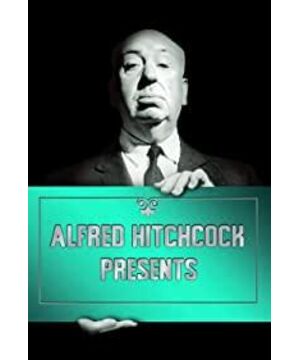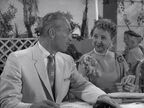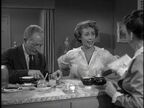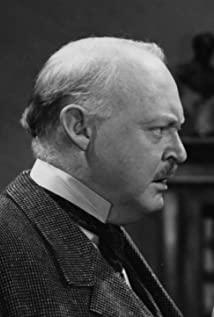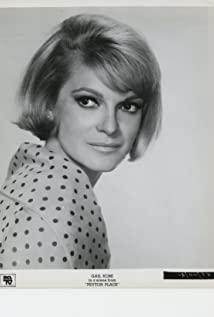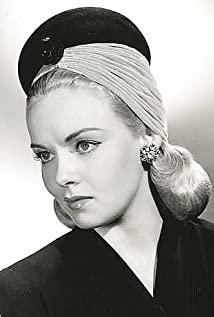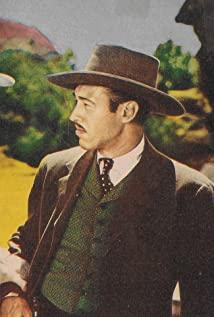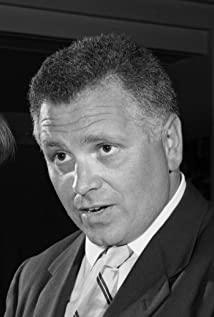Text / Xiao Guanping
In the first season of "Hitchcock Suspense Stories", there is an episode called "No Shadow".
[It is about a British mother and daughter traveling to Paris during the World Expo in France and staying in a hotel. That night, the mother had a sudden fever. After the doctor diagnosed the girl, the doctor asked the girl to go to his house to get the medicine from his wife. The wife delayed the medicine for a long time before giving the medicine to the girl.
When the girl returned to the hotel, the front desk, waiter and maid said that they had never seen her before, saying that the room she registered had long been occupied by guests, and that the wallpaper and furnishings of the room were completely different from when she checked in. The front desk thought she was too tired and found the wrong hotel, and the girl repeatedly confirmed that she remembered correctly. She became very agitated for worrying about her mother's illness and was regarded as a lunatic by people.
Later, with the assistance of the British Embassy, the girl finally solved the mystery: it turned out that her mother was suffering from the Black Death. The doctor knew that her mother had died soon, so she deliberately distracted the girl, delayed time, and secretly buried her mother. , And at the same time let the hotel quickly change the room, creating the illusion that the girl remembered the hotel incorrectly.
The purpose of doing so turned out to be only: to prevent tourists who came to Paris to watch the World Expo from staying in the store after learning about it. 】
This is the main content of this short film. The story is simple, but suspenseful and fascinating. It makes people follow Hitchcock's anxious and mysterious tone into his pre-set puzzle.
I really like Hitchcock’s storytelling method, starting from a very common little thing, as the story unfolds, some unbelievable strange things happen, and the human conflict is the main clue, which closely attracts the audience’s attention. , The plot has twists and turns, and the ending is unexpected, full of O. Henry's style.
In contrast, Ni Kuang’s "Wesley" series also has a new and wonderful beginning. The entry point is very imaginative, but the ending is often the same, because Ni Kuang writes science fiction and likes to push mysteries to outer space creatures.
While Hitchcock does not involve supernatural phenomena, he always cleverly uses human weakness and dramatic coincidences to make people have to admire after reading.
When watching this short play, the audience always stands in the same perspective as the heroine, so believe everything she said, knowing that she was deceived and played and felt annoyed. This is what Hitchcock calls the "suspense" setting. .
But we only know one, but don't know the other, where is her mother? Why did the hotel front desk lie to him? What kind of person is a doctor? Is this a murder case?
These puzzles have been circling around the audience's ears, constantly spinning, every time the audience finds new clues, new puzzles will be added, until the girl completely debunks the hotel manager’s lie, the audience still doesn’t know why they want it. Do.
The answer at the end is very black and humorous. This did not involve any murder at all. It turned out that they secretly buried the girl’s mother to take care of the business, and even to make the French World Expo go smoothly without causing commotion and panic.
The old urchin Hitchcock amused all the audience, and the string that had been tense in his heart was easily released, so it was easy to get the thrill of watching the movie.
Someone said, " The suspense set by O. Henry mostly expresses the affection, friendship and love between people, while the suspense of Hitchcock is mostly the result of betrayal, evil and desire. "
But judging from this story, Hitchcock wrote the death of a kind woman in such a spiral, the audience did not feel heavy and sad, but seemed to be relieved of a heavy burden. This is really a strong storytelling ability.
————
This story reminds me of my favorite TV series "Criminal Detective Archives" and Ni Kuang's science fiction novel "Fox Change". There are similar plots in them: the behind-the-scenes planner uses the authorities' ignorance of the unfamiliar environment to turn the dragon into the phoenix. , Make the other party have preconceived wrong judgments, thus reverse right and wrong, and achieve its ulterior purpose.
There is a case in "Criminal Detective Files", a serial homicide case at the Both Education Center. In order to mislead the police, the murderer created a light spot and used an identical reception room to set up the murder scene to create alibi and disturb the sight of the investigator. At first, the police couldn't figure out this mystery, but finally found this suspicious point by recalling the details of the sun's rays in the house.
This is the reverse thinking of "Stealing the Dragon and Turning the Phoenix" in the "No Shadow" story. One is to transform the same room into two different appearances, and the other is to transform two different rooms into the same appearance. The purpose is to make people who enter the room have an illusion, believing it is false or believing it is true, and make the people who design the layout conspiracy to succeed.
Without knowing the ending, it is difficult for viewers of "Criminal Investigation Archives" to discover the detail of "changing scenes", which requires "reasoning" step by step to find doubts;
The viewers of "Without a Trace" knew in advance that the hotel people were setting up a scam (although they did not know why the hotel did it), but the heroine was kept in the dark. This is the pre-set suspense by Hitchcock. ".
Hitchcock once used a sentence to explain that "suspension" is superior to "reasoning" and can more grasp the audience's heart: "When it explodes, there is no fear, but the fear is waiting for the explosion."
————
In addition, in Ni Kuang's novel "Fox Change", Jiu Boxin first took Wesley to visit the secret room on the third floor of his mansion and told him a great secret: his father kept shrinking in proportion every day, and he didn't stop changing until he killed himself. , Has become a half-inch corpse.
The next day, when Wesley went to him to explore this terrifying mystery, he denied it and said that Wesley was nonsense. Angrily, Wesley sneaked into the room at night, but could no longer find the small box holding the "corpse" of his father, and found that the layout of the room was completely different from what he saw yesterday.
This is very similar to the "Stealing the Dragon and Turning the Phoenix" in "No Shadow", in that someone has turned a closed house into a completely different place overnight.
Readers have known that Jiu Boxin lied, but they still have doubts, hoping to find out the truth. Firstly, they want to know why the layout of the room suddenly changed, and secondly, they want to know why Jiu Boxin's attitude changed overnight, and most want to know. The reason is why Jiu Boxin’s father will gradually become smaller.
Because Ni Kuang added some sci-fi and supernatural elements on the basis of suspense and reasoning, the complex and uneasy psychology of readers adds suspicion and thinking about unsolved mysteries, so it attracts readers to continue reading.
When I was watching Wesley’s "The Mansion" and "Mount Point", I was also immersed in the scene, entering the horror atmosphere he carefully created, and now I think about the reading scenes at that time, and I am still in a cold sweat. Ni Kuang is truly a master of creating suspense and atmosphere.
————
There are many classic Hitchcock stories. This episode is not outstanding, but it reminds me of "Criminal Detective Files" and "Wesley Series", so I felt it.
My favorite suspense reasoning works, Ni Kuang's "Wesley Series" , Pan Jiade's "Criminal Detective Archives" , and Hitchcock's "Suspense Stories Collection" mentioned in this article are among the top 10;
Another Osamu Tezuka , Gosho Aoyama , Shinichi Hoshi, Edgar Allan Poe , Christie , Arthur Conan Doyle , Keigo Higashino , who's works are rare masterpiece.
————
Attachment: ❤ Reasoning writers and masterpieces:
Osamu Tezuka (Japan) : Black Jack the Weird Doctor
Ni Kuang (middle) : Buildings, hideaways, toys, pen pals
Hitchcock (English) : Hitchcock Suspense Stories
Borges (A) : Garden with forked paths
Xingxinyi (Sun): Hey-come out
Keigo Higashino: The dedication of the worry-free grocery store, the masked mountain villa, and the suspect X
Allan Poe (U.S.): Murder on Mogg Street
Aoyama Gosho (Japan): Detective Conan
Pan Jiade (middle): Criminal investigation files
Agatha Christie (English): No survivor, murder on the Orient Express, tragedy on the Nile
Stephen King (US): The Shining
Conan Doyle (English): The Sherlock Holmes Collection
From the perspective of setting suspense, these authors are master storytellers who are well versed in the psychology of readers. Who is more skilled? I will judge after seeing more suspense reasoning works.
2012.5.7 first draft 2018/5/15 revision
View more about Alfred Hitchcock Presents reviews


